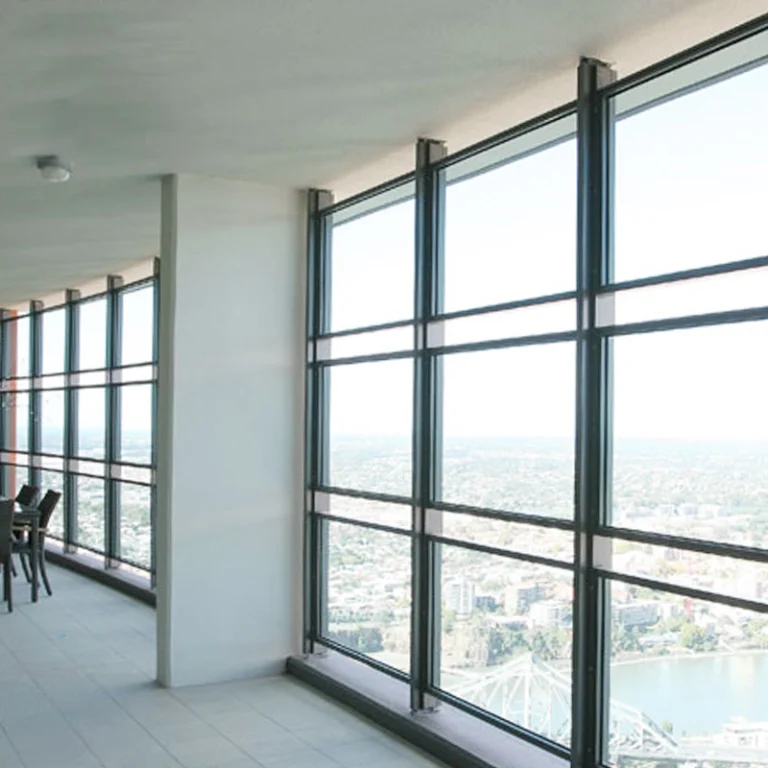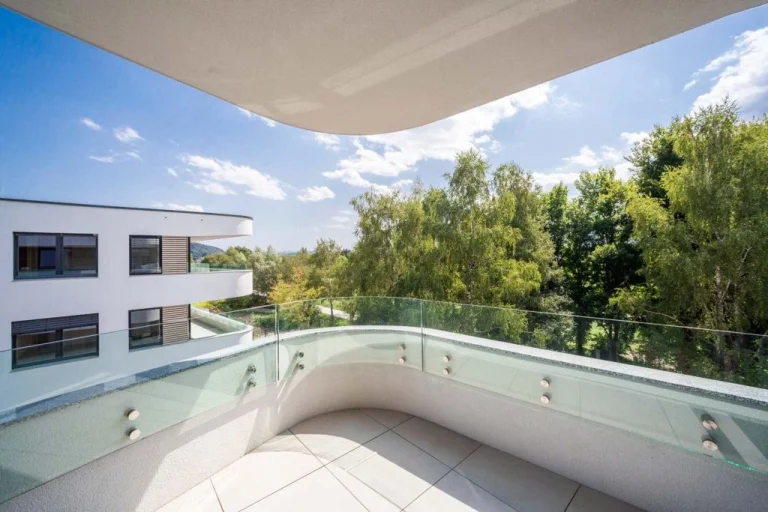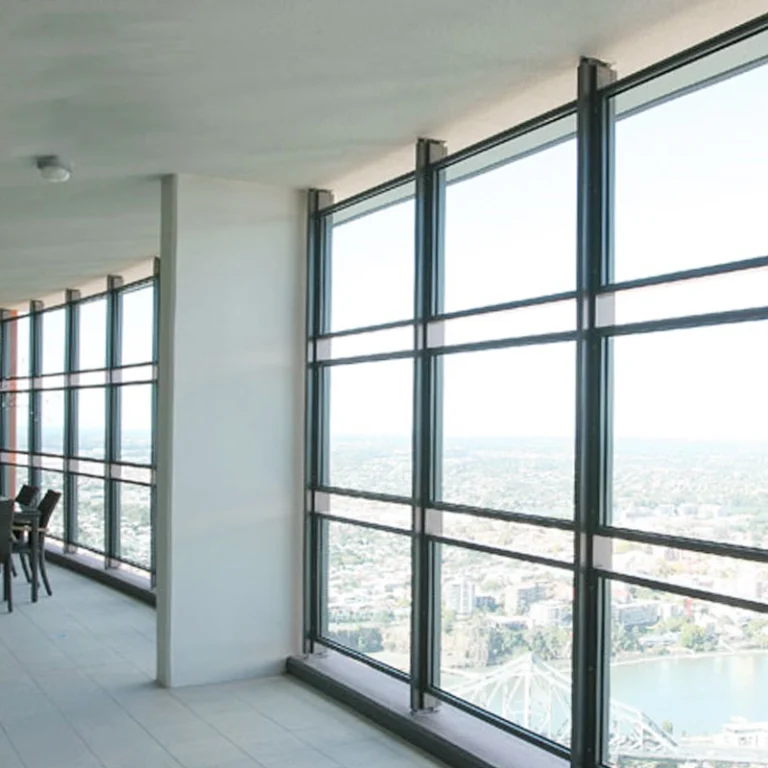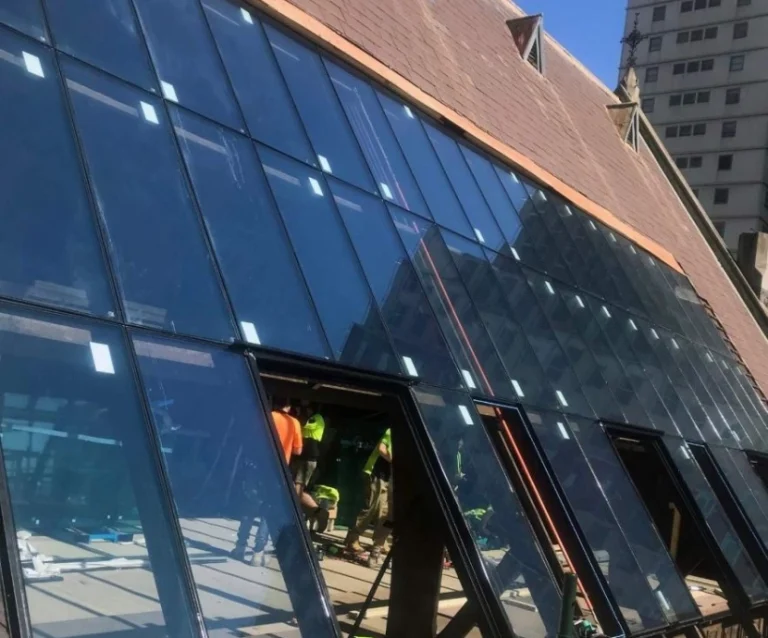Toughened glass is strong and safe for many uses, like windows and doors. But sometimes, it can break suddenly. This can happen without warning, which makes people worry. Knowing why this happens and how to stop it is important. Below, we explore what causes toughened glass to shatter, how to prevent it, and ways to keep people safe.
We will also introduce China’s top glass production company – Landson Glass, and explain how their high-quality tempered glass is explosion-proof compared to ordinary glass.
Common Causes of Toughened Glass Breakage
Thermal Stress and Uneven Temperature Distribution
Toughened glass handles heat better than regular glass. Still, it can crack if parts of it get hot or cold too fast. For example, sunlight might warm one side of a window while the other stays cool. This creates tension inside the glass. If the temperature difference gets too big, the glass may break apart. This is called thermal stress and can happen in homes or offices where sunlight hits unevenly.
Edge Damage During Manufacturing or Installation
The edges of toughened glass are delicate. During glass toughening or when workers install it, small scratches or chips can form. These tiny marks might be hard to spot. Over time, they weaken the glass. Things like strong winds, building shifts, or heat changes can make these flaws grow into cracks. Soon, the whole pane might shatter.
Improper Frame Design and Installation Issues
For glass to stay safe, it needs a good frame. The frame must let the glass expand or shrink a little. If the frame is too tight or uneven, it puts pressure on certain spots. This stress can build up and cause the glass to break. Also, if workers don’t line up the glass properly, it faces forces it wasn’t meant to handle.
Prevention Strategies for Toughened Glass Explosions
Quality Control in the Glass Toughening Process
Making toughened glass requires care. Factories must heat and cool the glass evenly during glass toughening. They should check every piece for flaws before it leaves. Landson Glass follow strict rules set by national and industry standards. This ensures their glass is strong and meets high-quality requirements. As long as your installation process is correct, their products will not have the risk of cracking
Heat Soaking Treatment to Minimize Nickel Sulphide Risks
Tiny particles called nickel sulphide (NiS) can hide in toughened glass. These bits may expand years later, causing the glass to break suddenly. To avoid this, factories can use heat soaking. This process heats the glass again at a lower temperature for a long time. It makes NiS particles react early, so they don’t cause trouble after installation.
Best Practices for Handling and Installation
Workers must handle glass carefully to avoid edge damage. Using suction cups instead of hands is safer. Storing glass upright with soft padding also helps. When installing, make sure surfaces are clean and smooth. This prevents uneven pressure. Landson Glass gives expert advice and training. We teach about product features, installation steps, and care tips. Plus, our free training helps you and your team use glass products well.
Importance of Certified Manufacturing Standards
Pick suppliers who meet global safety rules, like Australia Landson Glass (QingDao) CO., LTD. Their factories with climate control make high-quality Safety Glass. This glass follows Australian, New Zealand, and European standards. Certifications show the glass is made with consistent quality and safe materials.
Safety Measures to Reduce Risk and Injury
Use of Safety Films and Laminated Layers
If toughened glass breaks, safety films or laminated layers keep shards from flying. For example, Rice Paper Laminated Glass is pretty and safe. It uses the EVA lamination method to blend style with protection. Tinted Laminated Glass comes with options like PVB (Architectural & Acoustic), SG®, XIR, ITO, and more. These give both safety and design choices.
Selecting Appropriate Framing Systems
Frames should match the environment, like handling wind or earthquakes. Use soft gaskets to cushion the glass. This lets it move without stress on the edges. A good frame keeps the glass secure and safe.
Regular Inspection and Maintenance of Installed Glass
Checking glass often helps find problems early. Look for scratches near edges, frames that don’t line up, or water leaks. These clues show fixes are needed. Landson Glass offers great after-sales help. Our skilled team gives answers for simple questions or tricky issues. We make solutions that fit each case.
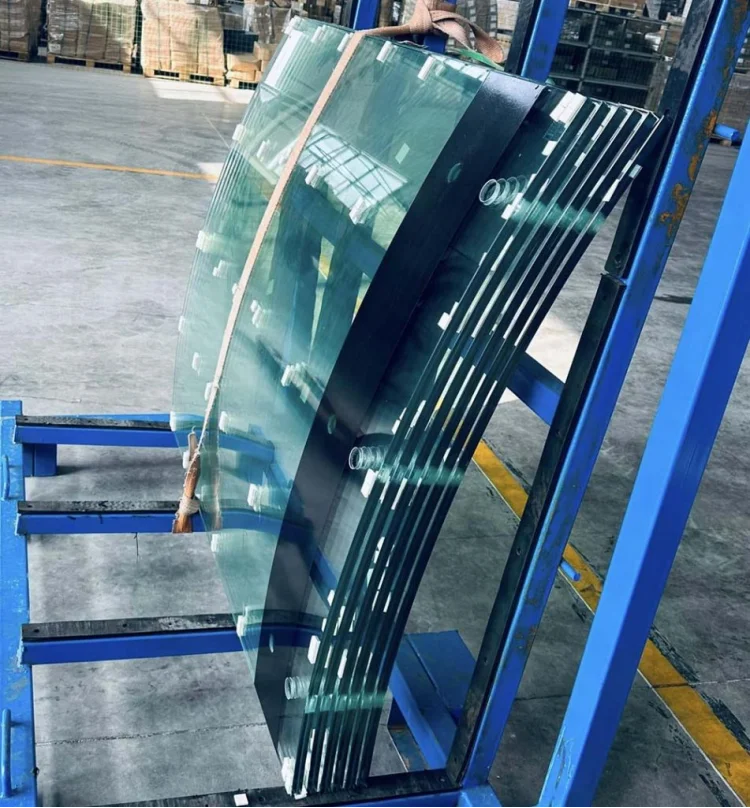
Tempered Glass vs. Regular Glass: What’s the Difference?
Differences in Manufacturing Processes
Tempered glass becomes tempered through glass toughening. It’s heated past 600°C, then cooled fast with air jets. This makes the surface strong while keeping tension inside. The result is glass four to five times tougher than regular glass.
Mechanical Strength and Thermal Resistance Comparison
Tempered glass takes hits better than regular float glass because of its stress structure. It also handles sudden heat changes up to 250°C. Like Landson Glass’s DecoGlass can manage temperature differences up to 250°C, making it perfect for kitchens or sunny building fronts.
Safety Characteristics Upon Breakage
Regular glass breaks into sharp pieces that can hurt people. Tempered glass breaks into small, dull bits. These are less likely to cause injury. That’s why tempered glass is used in building codes for doors and window toughened glass.
The Role of Window Toughened Glass in Modern Architecture
Benefits for Residential and Commercial Applications
Window toughened glass is key in today’s buildings. It’s strong and looks good. It’s used in tall offices to fight wind and in homes for safe shower doors. It meets safety rules while fitting many needs. Ceramic Fritted Tempered Glass adds style and resists scratches. Its ceramic layer stays strong in tough conditions, great for inside or outside use.
Aesthetic Versatility with Enhanced Safety Features
Modern buildings need style and safety. Landson Glass’s Cathedral Glass has patterns and works with safety features like lamination or tempering. It’s ideal for partitions or decorative building fronts.
Choosing the Right Glass Processor for Your Project Needs
Why Manufacturer Experience Matters in Safety Assurance
Experience counts when working with risky materials like tempered glass. With 22 years in glass processing, Landson Glass offer reliable products and expert help. A skilled maker knows the rules for markets like Australia and Europe. Australia Landson Glass (QingDao) CO., LTD. provides custom solutions in certified factories.
Evaluating Certifications, Capabilities, and Product Range
Don’t just look at price when picking a supplier. Check for certifications like SAI Global. See if they can make custom sizes and interlayers. Make sure they offer good after-sales support. Look for products like Tinted Laminated Glass, Ceramic Fritted Tempered Glass, or Cathedral Patterned Decorative Panels. These suit both function and style.
Frequently Asked Questions (FAQ)
Q: Why does toughened (tempered) glass sometimes explode without warning?
A: Sudden breaks can come from nickel sulphide inclusions trapped during glass toughening. Stress from bad frames or edge damage can also build up.
Q: What steps should I take during installation to avoid breakage?
A: Use frames that allow expansion. Handle glass carefully to avoid edge damage. Pick heat-soaked tempered glass when you can. Check glass often after installation.
Q: Does adding lamination improve safety?
A: Yes. Laminated tempered glass is strong and safe. If it breaks, shards stay stuck together, lowering injury risks compared to plain tempered glass.
Q: Are there certifications I should look out for when buying safety glass?
A: Yes. Look for compliance with Australian, New Zealand, or European standards. SAI Global certification shows consistent testing and quality.
Q: Why should I consider Landson Glass products?
A: Since 2002, Landson Glass has served global markets with certified products. Our wide range is used in homes and businesses across Australia.
For confidence in architectural glazing, reach out to Landson Glass today. We focus on quality and customer happiness. We provide full solutions from start to finish!



